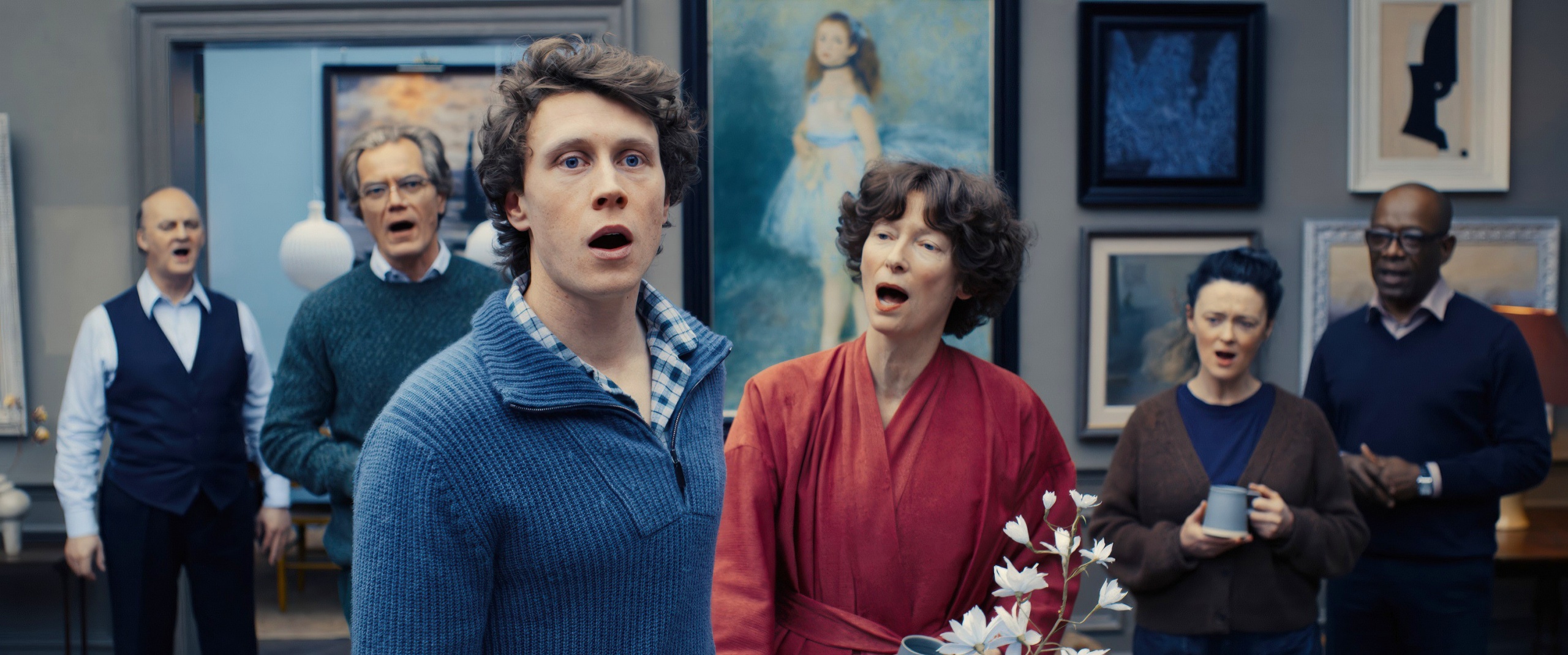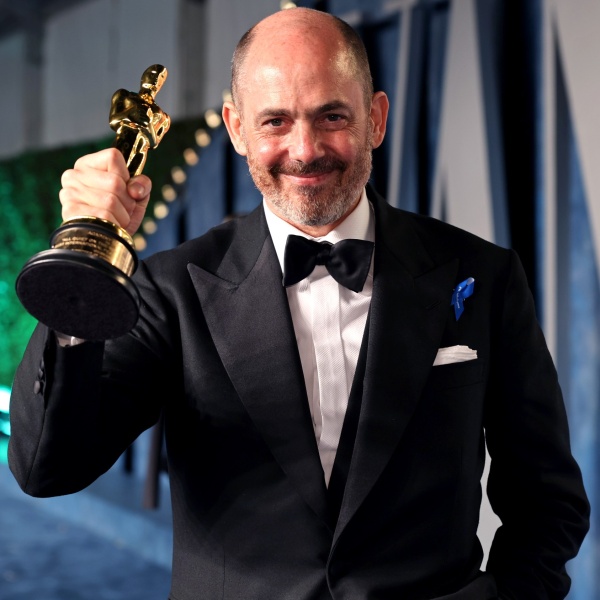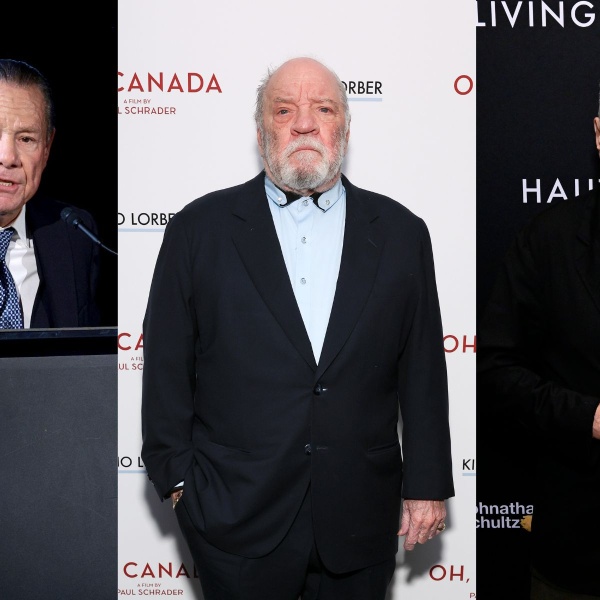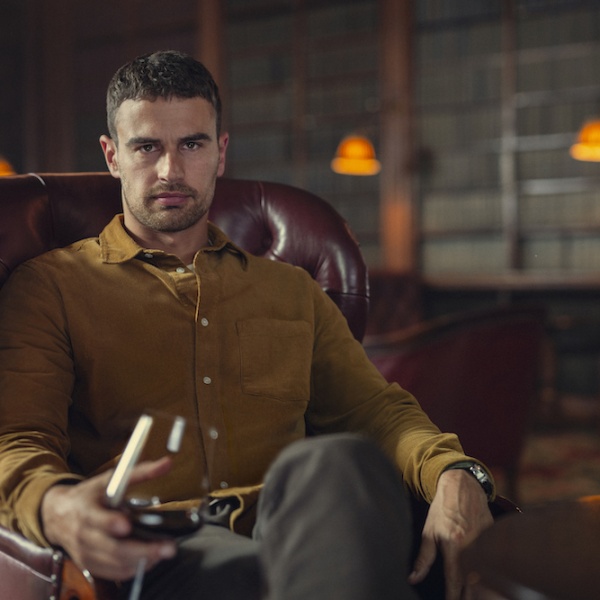For filmmaker Joshua Oppenheimer, the beginning of “The End” came somewhat unexpectedly as an extension of his work in documentary. This might sound strange considering this narrative feature is a musical set in the bunker of a family partly responsible for an apocalyptic event 25 years prior, but throughout the project’s inception, production, and edit, Oppenheimer was constantly drawing upon his skills as a documentarian to further his examination of humanity’s ability to — drawing upon a fitting allegory — “fiddle while Rome burns.”
To hear Oppenheimer tell it, if there were a way to have told the story depicted in “The End” as a documentary, he probably would have. In a recent interview with IndieWire, he said he intended to follow 2012’s “The Act of Killing” and its 2014 followup, “The Look of Silence,” with a third documentary about the oligarchs who exploited the pain and suffering of those featured in these films to enrich themselves. In releasing these projects, however, Oppenheimer was then prevented from returning to Indonesia, forcing him to redirect his investigation toward oligarchs in “analogous situations elsewhere.”
“There was a family — an oil tycoon in Asia who had obtained his oil concessions elsewhere in Asia through acts of mass violence — and he was buying for his family a bunker much like the one in ‘The End.’ It wasn’t yet pitted out and furnished, but it was going to have many of the same features — an art vault, a wine cellar, an underground pool, gardens — and he was preparing for the possibility of raising a new generation in that bunker,” Oppenheimer told IndieWire. “And I went to see the bunker with the family, and I wanted to ask these questions — questions that I didn’t know them well enough to ask — but I was dying to ask them, how would you cope with the guilt for the catastrophe from which you’d be fleeing? How would you cope with the remorse for the loved ones you would inevitably be leaving behind? How would you tell your story to the new generation that would be born in the bunker? And would that be a way of obscuring your past from yourself? Rewriting your history so as to ease your regrets?”
Knowing he couldn’t pose these questions directly, Oppenheimer decided to shoot a narrative feature that felt like a “fly-on-the-wall documentary” of the family 25 years after moving in. As he mulled over the concept on the flight home from visiting the bunker, he decided to watch one of his favorite films, Jacques Demy’s whimsical yet solemn romantic musical “The Umbrellas of Cherbourg,” and realized the piece the film needed to make it come alive.

“I’ll make a musical,” said Oppenheimer of how the idea struck. “It’ll be set in a bunker like this 25 years after a wealthy family has moved in. I’ll make the family American because the musical, especially the kind of Golden Age Musical that I wanted to rework, is a quintessentially American genre of a quintessentially American false hope. And the film will be called ‘The End.’ And it came to me all in one package. It had to be a musical because that’s what makes it a film about storytelling and delusion.”
Whereas most musicals have characters who sing when mere speech isn’t enough to communicate what they’re trying to say, Oppenheimer wanted his subjects to be compelled by the “crises of doubt” they face throughout the film and the “stories they tell themselves” to deal with the devastation they’ve wrought. Playing “Father” in the film marks the first time Michael Shannon has appeared in a traditional musical since he was in high school, but even then, he was only in the chorus. Having formed the indie rock band Corporal in 2002 and taken on country singer George Jones in the recent limited series “George & Tammy,” Shannon is no stranger to singing, but expressing himself in this way in “The End” felt like “new terrain” he was excited to explore.
“Singing is as much a form of communication as talking is, if not more so,” Shannon said to IndieWire. “Honestly, the most expressive thing that human beings do is to sing or make music. It’s so much more substantial than conversation. A lot of times, if you sing to me, I get more of a sense of where you’re at and what’s going on with you than if you just talk to me. And because I think there’s so much of the soul and the heart that comes through in the music, I think it’s an even more direct form of communication in some ways than just conversational speech.”
In capturing that directness, Oppenheimer often shot in long takes, forgoing the fantasy sequences and montages that many have come to associate with musicals for an approach that better accessed his skills as a documentarian. Shannon noticed this as they were working together and appreciated the access it allowed him as a performer.

“Some other directors I’ve worked with, you’ll present something, you’ll offer some possibility of performance whatnot and it’s like, ‘Oh, yeah. Yeah, that’s cool. I like that,’ and then that’s it. But with him, he was just always asking more questions, pushing like, ‘Have we really gotten to the bottom of this yet? What else is there?’ Just very, very hungry and I think that probably comes from his experience as a documentary filmmaker because that’s what you’re doing when you’re making a documentary,” said Shannon. “You’re looking at something and saying, ‘Am I seeing all this or is there something I’m missing?’ And that kind of a relentless investigation, he applied that to a narrative format.”
In this way, the “search for authenticity” present in “The Act of Killing” and “The Look of Silence” can also be found in “The End.” But as Oppenheimer explains it, the tie uniting all three and his filmmaking in general is a sense of compassion and hope.
“At its most fundamental, ‘The End,’ it’s about love,” Oppenheimer said. “I made the film with a loving embrace of each of the flawed characters we see on screen. That’s what motivates me to film anyone, whether it’s a fictional character or a documentary subject. It’s a film about love and how love demands honesty with ourselves and with the people we love. When we lie to ourselves about our past and impose those lies on the people we love and often the people we hurt, we hollow out those relationships. When we lie to ourselves and the people we love about our role in this world individually and collectively, we make it impossible to protect what we love, including the very planet that we’re bequeathing to our children.”
Shannon doesn’t want to “impose on the audience” any interpretation, but speaking for himself, he’s noticed more questions popping up in his mind since making it related to his own place in this world and the larger role he plays.
“Something I’ve been thinking about personally as of late, and I think it relates to the film is, ‘Who am I?’ Like my true self. And what aspects of my personality or how I present myself are not real or not who I really am — are not authentic?” said Shannon. “I think if we were all our authentic selves that the world would be a much healthier place, but unfortunately, a lot of us are jam-packed with all kinds of illusions about ourselves and illusions about our place in the world and our impact on other people and what we think is fair or right or what we deserve. I think this film takes a sledgehammer to that, hopefully, when you watch how things unravel. I think that the hope of the film actually lies in the unraveling of the lies.”
Asked which of his films he’d like to see turned into a musical, Shannon responded, “‘The Shape of Water,’ I think, would be an amazing musical.”
“The End” is currently playing in theaters from Neon.




